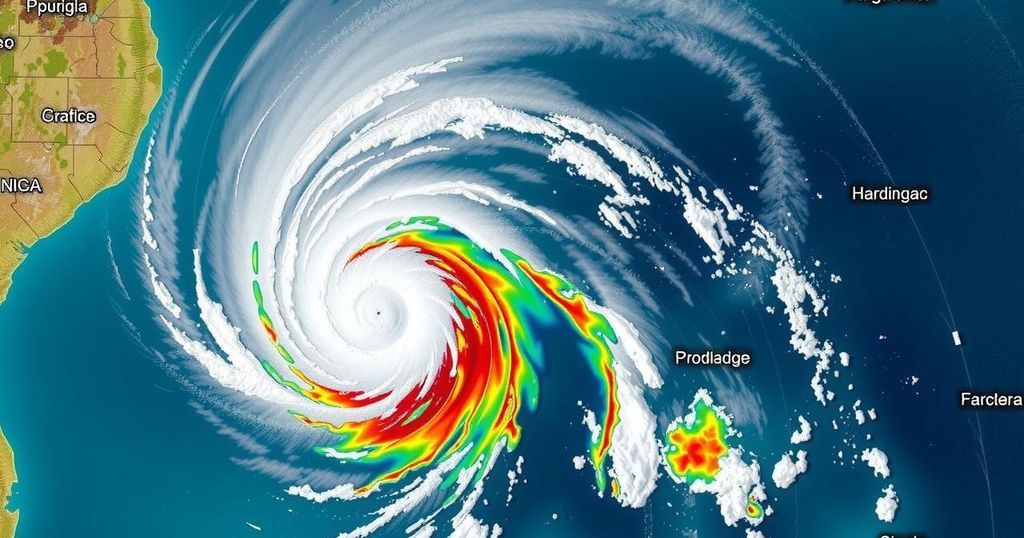Tropical Cyclone Chido made landfall in December 2024, affecting over 453,971 people in Mozambique, resulting in significant destruction of homes, schools, and healthcare facilities. A cholera outbreak has emerged in affected regions, complicating the humanitarian response. Urgent assistance is needed to provide shelter, food, and medical care amid existing crises including drought and conflict.
In December 2024, Tropical Cyclone Chido struck Mozambique, unleashing catastrophic rainfall exceeding 250 mm in just 24 hours and winds up to 120 km/h. This natural disaster has severely impacted communities, with over 453,971 individuals affected, including 120 fatalities and 868 injuries. Noteworthy destruction includes more than 70,000 damaged homes, significant infrastructure loss including schools and healthcare facilities, and widespread food insecurity due to agricultural disruptions. In addition, a cholera outbreak reported 302 cases and resulted in 29 deaths in Nampula Province.
The humanitarian response has been challenged by the extensive damage to transportation and communication networks, which hampers relief efforts. Key provinces affected include Cabo Delgado and Nampula, where makeshift shelters have become the norm following the cyclone’s devastation. Authorities are working together with humanitarian organizations to assess needs and provide immediate assistance, yet the humanitarian requirements are exceeding the current capacity for response.
There is an urgent call for additional resources to address immediate needs, including the provision of temporary shelters, food, potable water, medical supplies, and sanitation facilities. Furthermore, any aid strategy must prioritize the prevention of water-borne diseases and address the trauma and psychological support required by those affected. The importance of gender-based violence prevention and response in the wake of the cyclone is underscored, as potential risks rise amid the chaos.
The compounded humanitarian crises, including ongoing drought and conflict, exacerbate the situation, affecting millions across the region. The urgency of replenishing humanitarian aid supplies is emphasized, as timely intervention is crucial to prevent further loss of life and to support recovery efforts.
In Mozambique, Cyclone Chido has compounded existing vulnerabilities in a country already grappling with a drought affecting 1.4 million individuals and ongoing conflict displacing 1.3 million. The cyclone struck at the end of 2024, a critical time for humanitarian operations which had mobilized limited funding for response efforts. The immediate aftermath highlights the need for coordinated support from government agencies and international organizations to address dire conditions and facilitate recovery for affected populations.
In conclusion, the disaster caused by Tropical Cyclone Chido necessitates an urgent humanitarian response to address the needs of hundreds of thousands of affected individuals. With significant destruction of infrastructure and ongoing health crises, prompt action and additional resources are essential to prevent widespread suffering and ensure the recovery of affected communities. The situation remains critical, requiring the collective efforts of humanitarian partners, government authorities, and the international community to promote resilience and recovery in Mozambique.
Original Source: reliefweb.int






